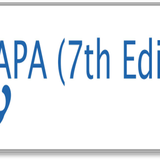The Effect Of CFO Demographics On Fraudulent Financial Reporting
DOI:
https://doi.org/10.24912/ja.v24i1.639Abstract
References
ACFE Indonesia. (2017). Survai Fraud Indonesia 2016. Retrieved from Jakarta.
Barua, A., Davidson, L. F., Rama, D. V., and Thiruvadi, S. (2010). CFO gender and accruals quality. Accounting Horizons, 24(1), 25-39.
Bertrand, M., and Schoar, A. (2003). Managing with style: The effect of managers on firm policies. The Quarterly journal of economics, 118(4), 1169-1208.
Capezio, A., and Mavisakalyan, A. (2016). Women in the boardroom and fraud: Evidence from Australia. Australian Journal of Management, 41(4), 719-734.
Cheng, L. T., Chan, R. Y., and Leung, T. (2010). Management demography and corporate performance: Evidence from China. International Business Review, 19(3), 261-275.
Daboub, A. J., Rasheed, A. M., Priem, R. L., and Gray, D. (1995). Top management team characteristics and corporate illegal activity. Academy of Management review, 20(1), 138-170.
Dechow, P. M., Ge, W., Larson, C. R., and Sloan, R. G. (2011). Predicting material accounting misstatements. Contemporary accounting research, 28(1), 17-82.
Francis, B., Hasan, I., Park, J. C., and Wu, Q. (2015). Gender differences in financial reporting decision making: Evidence from accounting conservatism. Contemporary Accounting Research, 32(3), 1285-1318.
Hajek, P., and Henriques, R. (2017). Mining corporate annual reports for intelligent detection of financial statement fraud–A comparative study of machine learning methods. Knowledge-Based Systems, 128, 139-152.
Hambrick, D. C., and Mason, P. A. (1984). Upper echelons: The organization as a reflection of its top managers. Academy of Management review, 9(2), 193-206.
Hartomo, G. (2019). Kronologi Kasus Laporan Keuangan Garuda Indonesia hingga Kena Sanksi. Retrieved from https://economy.okezone.com/read/2019/06/28/320/2072245/kronologi-kasus-laporan-keuangan-garuda-indonesia-hingga-kena-sanksi.
Heminway, J. M. (2007). Sex, trust, and corporate boards. Hastings Women's LJ, 18, 173.
Huang, H.-W., Rose-Green, E., and Lee, C.-C. (2012). CEO age and financial reporting quality. Accounting Horizons, 26(4), 725-740.
Liao, J., Smith, D., and Liu, X. (2019). Female CFOs and accounting fraud: Evidence from China. Pacific-Basin Finance Journal, 53, 449-463.
Mardiana, A. (2015). Effect Ownership, Accountant Public Office, and Financial Distress to the Public Company Financial Fraudulent Reporting in Indonesia. Journal of Economics and Behavioral Studies, 7(2), 109-115.
Nasution, D., and Jonnergård, K. (2017). Do auditor and CFO gender matter to earnings quality? Evidence from Sweden. Gender in Management: An International Journal, 32(5), 330-351.
Noble, M. R. (2019). Fraud diamond analysis in detecting financial statement fraud. The Indonesian Accounting Review, 9(2).
Ortiz-de-Mandojana, N., Bansal, P., & Aragón-Correa, J. A. (2019). Older and Wiser: How CEOs’ Time Perspective Influences Long-Term Investments in Environmentally Responsible Technologies. British Journal of Management, 30(1), 134-150. doi:10.1111/1467-8551.12287.
Papadimitri, P., Pasiouras, F., Tasiou, M., and Ventouri, A. (2020). The effects of board of directors’ education on firms’ credit ratings. Journal of Business Research, 116, 294-313. doi:https://doi.org/10.1016/j.jbusres.2020.04.059.
Peraturan Otoritas Jasa Keuangan Nomor 75 /Pojk.04/2017 Tentang Tanggung Jawab Direksi Atas Laporan Keuangan, (2017).
Price, M., and Norris, D. M. (2009). White-collar crime: Corporate and securities and commodities fraud. Journal of the American Academy of Psychiatry and the Law Online, 37(4), 538-544.
Rashad Abdel‐Khalik, A. (2014). CEO risk preference and investing in R & D. Abacus, 50(3), 245-278.
Rusmin, R., and Evans, J. (2017). Audit Quality and Audit Report Lag: Case of Indonesian Listed Companies. Asian Review of Accounting, 25(2), 191-210. Retrieved from https://www.emeraldinsight.com/doi/abs/10.1108/ARA-06-2015-0062.
SOX Section 302: Corporate Responsibility for Financial Reports, (2002).
Schnatterly, K., Gangloff, K. A., & Tuschke, A. (2018). CEO Wrongdoing: A Review of Pressure, Opportunity, and Rationalization. Journal of Management, 44(6), 2405-2432. doi:10.1177/0149206318771177.
Sproten, A. N., Diener, C., Fiebach, C. J., and Schwieren, C. (2018). Decision making and age: Factors influencing decision making under uncertainty. Journal of Behavioral and Experimental Economics, 76, 43-54. doi:https://doi.org/10.1016/j.socec.2018.07.002.
Subramanyam, K. (2014). Financial statement analysis (Eleventh Edition ed.): Includes index.
Sudarman, W. A., and Hidayat, W. (2019). Audit Committee and Earnings Management: The Role of Gender. Jurnal Akuntansi, 23(3), 379-392.
Sukma, P., and Bernawati, Y. (2019). The Impact of Audit Committe Characteristics on Audit Quality. Jurnal Akuntansi, 23(3), 363-378.
Sun, J., Kent, P., Qi, B., and Wang, J. (2017). Chief financial officer demographic characteristics and fraudulent financial reporting in China. Accounting & Finance.
Sundaram, R. K., and Yermack, D. L. (2007). Pay me later: Inside debt and its role in managerial compensation. The Journal of Finance, 62(4), 1551-1588.
Troy, C., Smith, K. G., and Domino, M. A. (2011). CEO demographics and accounting fraud: Who is more likely to rationalize illegal acts? Strategic Organization, 9(4), 259-282.
Xu, Q., Fernando, G. D., and Tam, K. (2018). Executive age and the readability of financial reports. Advances in Accounting, 43, 70-81. doi:https://doi.org/10.1016/j.adiac.2018.09.004.
Yuehua, X., Lin, Z., and Honghui, C. (2018). Board age and corporate financial fraud: An interactionist view. Long Range Planning, 51(6), 815-830.
Zhang, X., Bartol, K. M., Smith, K. G., Pfarrer, M. D., and Khanin, D. M. (2008). CEOs on the edge: Earnings manipulation and stock-based incentive misalignment. Academy of Management Journal, 51(2), 241-258.
Downloads
Published
How to Cite
Issue
Section
License
Copyright (c) 2020 Jurnal Akuntansi

This work is licensed under a Creative Commons Attribution-NonCommercial-ShareAlike 4.0 International License.
This journal provides immediate open access to its content on the principle that making research freely available to the public supports a greater global exchange of knowledge.

This work is licensed under a Creative Commons Attribution-NonCommercial-ShareAlike 4.0 International License



















